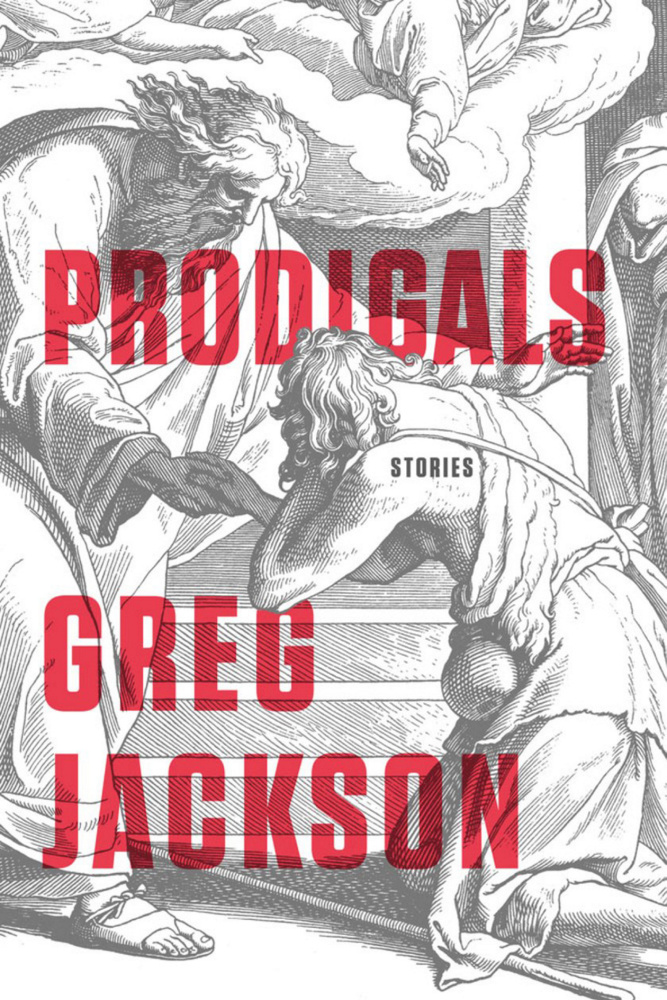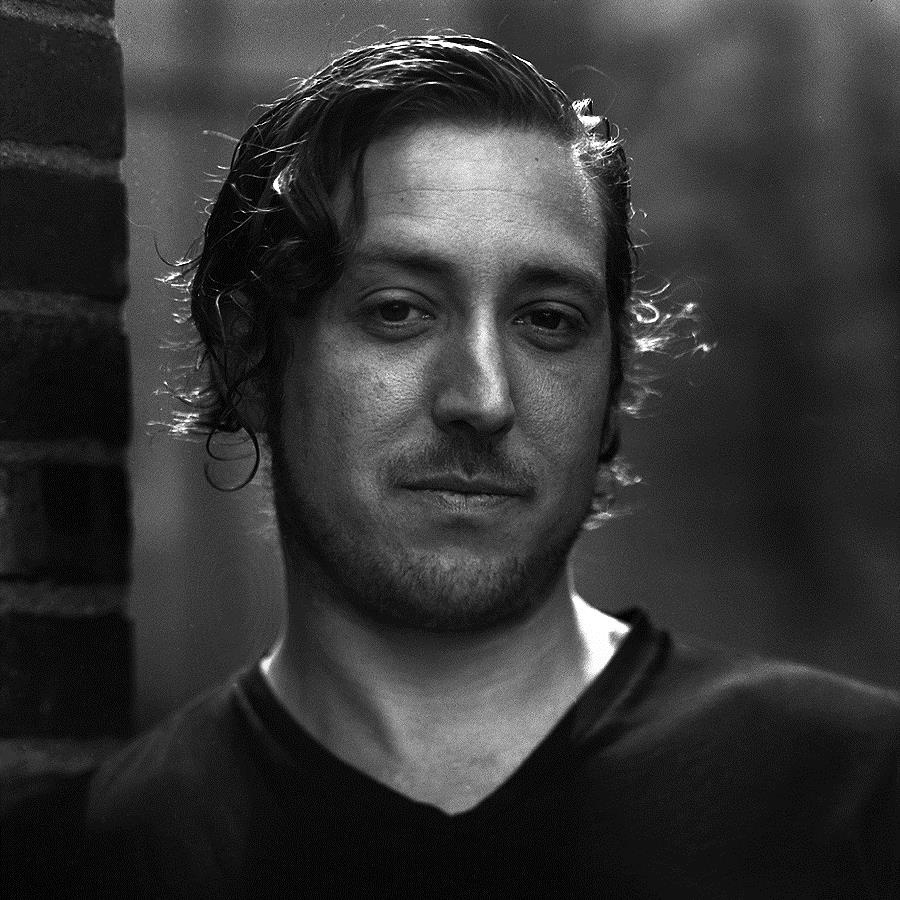In July 2014, The New Yorker ran a short story, “Wagner in the Desert,” about a group of well-off friends on the cusp of adulthood spending a drug-fueled weekend in Palm Springs. A dark, stylish satire, the story was author Greg Jackson’s first appearance in the magazine. One reviewer dubbed it the magazine’s “best fiction debut in years.”
Jackson, now 33, is hardly a stranger to the literary scene. His work has run in Granta and The Virginia Quarterly Review, and he won a fellowship to the MacDowell Colony. But his story’s launch in The New Yorker proved to be a turning point in his career.
“It certainly was a dream for me,” he says, “and it led very directly to people knowing about my work. It led to having this book. That was the precipitating factor.”
Jackson’s new collection, “Prodigals,” arrives this month with eight short stories that showcase his smart, filigreed brand of storytelling. He spoke recently from his home in Brooklyn about fiction, David Foster Wallace and voyeurism. This interview has been edited for length and clarity.
Q: Like many readers, I first encountered your work in The New Yorker. “Wagner in the Desert” is a very funny, over-the-top story. I had to keep reminding myself that these characters are stoned all the time.
A: It’s interesting for that story to be what people first saw of my work, including people I’ve known since my childhood. I did have a few moments of thinking there’s going to be some misinterpretation and some strange responses.
Q: Well, you do have the defense that it’s fiction, and you don’t have to cop to anything else.
A: The original piece was quite a bit longer and had to be cut for The New Yorker. My editor there did an incredible job. If someone had told me, “You need to cut 40 percent of this story,” it would have been like performing surgery on my child. I think a different editor probably would have said, “This is good, but it’s just way too long, and it’s not going to work shorter.”
Q: “Prodigals” is a very existential book. Most of the the characters seem to be raising questions about the meaning of their lives – in some cases, whether they even exist at all.
A: These existential questions are very much at the heart of the book. I wanted to write about how we construct meaning where we find it – our desire for religious or spiritual experience, human connection, our belief in transcendental moments.
Q: Many of your stories have elements of voyeurism – a peeping Tom, a character being watched and filmed as he pantomimes a tennis match, people watching themselves in mirrors during sex.
A: What is it about voyeurism? For me, it has to do with video and screen life, and the kind of reality that takes place when things aren’t right in front of us. We experience part of our relationships with people through these other media.
Being a writer feels a lot like being a voyeur. I think that we write with the faith that we’re able, to some extent, to know one another. You want to try and make the effort to live inside someone else’s head. I’m always a little bit afraid that that’s not actually what I’m achieving, as a writer, but that’s the hope.
Q: Your writing style has been compared to that of David Foster Wallace.
A: It’s incredibly flattering to be compared to him in any way. For me, he was an incredibly important writer. And he was a watershed writer for late 20th-century American fiction. I taught a course on Wallace at University of Virginia for a year.
Wallace made a type of thinking, and a type of engagement with the mind exciting, while being very rigorous. He tried to draw out the nuances of what it looks like second by second, blow by blow, to be thinking through something. He was trying to capture that in granular detail. He made that type of attentiveness, that type of wakefulness so attractive that it actually could rival some of the mindlessness of other things people were doing.
Literature’s not going to win the day, in terms of viewership or audience, against TV, but we have to fight for everybody’s attention. It’s harder to pick up a book than it is to put on a Netflix series.
Q: What appeals to you about the short story form?
A: I love writing short stories. I think you can often tell a story that has a lot of the depth and power of a novel in a short format. It requires a kind of compression. When people ask what my book is about, I find it tricky to answer in a way that I might not if it were a novel. Kind of like someone asks what a music album is about. You get things that both belong together and are their own entities. So I really like writing short stories because I get to move around between different projects, and I can focus intently, but I don’t have to be stuck with these characters for the next three years of my life.
Q: We are in a moment of the short story. Can you name some of your favorite writers and collections?
A: My favorite recent short story collection was Jamie Quatro’s “I Want To Show You More.” Some of my teachers over the years are some of my favorite short story writers. Deborah Eisenberg – she’s as good as it gets. I studied with Ann Beattie, whose work I adore. And Deborah introduced me to Grace Paley. I find that reading the best is really helpful for my own writing. It gets me excited.
Q: Can you read short stories by other authors when you’re working on your own material, or is that distracting?
A: I’m more likely to read things that I know, or that I’ve read before. I want to sink into them and be reminded of how masterful writers do it. I feel there’s so much to learn from the writers I admire. I’m very happy if I can internalize a little bit of what makes their style and voice so appealing. My stories go through so many levels of revision that one wouldn’t see the traces very clearly. I think this is how you learn to write.
Q: Do you write every day, or have a particular rhythm?
A: I will write every day, if something doesn’t intrude. It’s a high point of many days, but sometimes I kind of get into a rut. It’s really important to be out in the world. It refreshes your mind, shakes things up. So I will write every day, probably because all I really want to do ever is hang out inside, reading and writing, but I do force myself to take little breaks.
Q: You grew up both in Brunswick and outside of Boston. Do you consider yourself a Maine writer?
A: I do, actually, in some ways. As I get older, I feel more and more that Maine was the emotional core of my childhood. I think there is a quality to Maine that somehow produces more writers than other states. It’s being able to hear yourself think, being able to have that space and solitude. There’s a quality to the landscape, a quality to the cold. There’s also a kind of melancholy, a beautiful loneliness to a lot of Maine that resonates with the sensibility of many writers. In that poignancy, you’re trying to find ways to capture emotions that are very elusive.
Joan Silverman writes op-eds, essays and book reviews. Her work has appeared in The Christian Science Monitor, Chicago Tribune and Dallas Morning News.
Send questions/comments to the editors.




Success. Please wait for the page to reload. If the page does not reload within 5 seconds, please refresh the page.
Enter your email and password to access comments.
Hi, to comment on stories you must . This profile is in addition to your subscription and website login.
Already have a commenting profile? .
Invalid username/password.
Please check your email to confirm and complete your registration.
Only subscribers are eligible to post comments. Please subscribe or login first for digital access. Here’s why.
Use the form below to reset your password. When you've submitted your account email, we will send an email with a reset code.